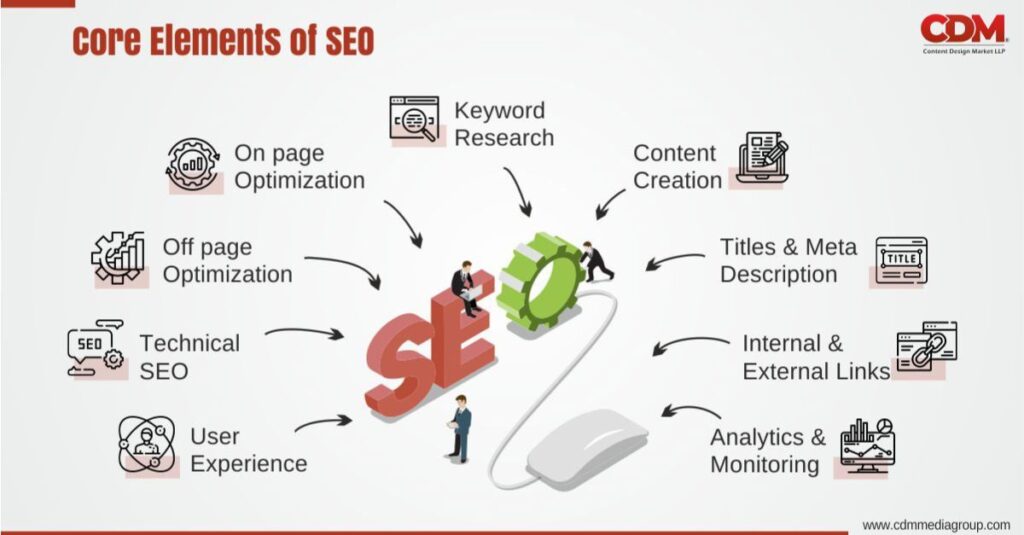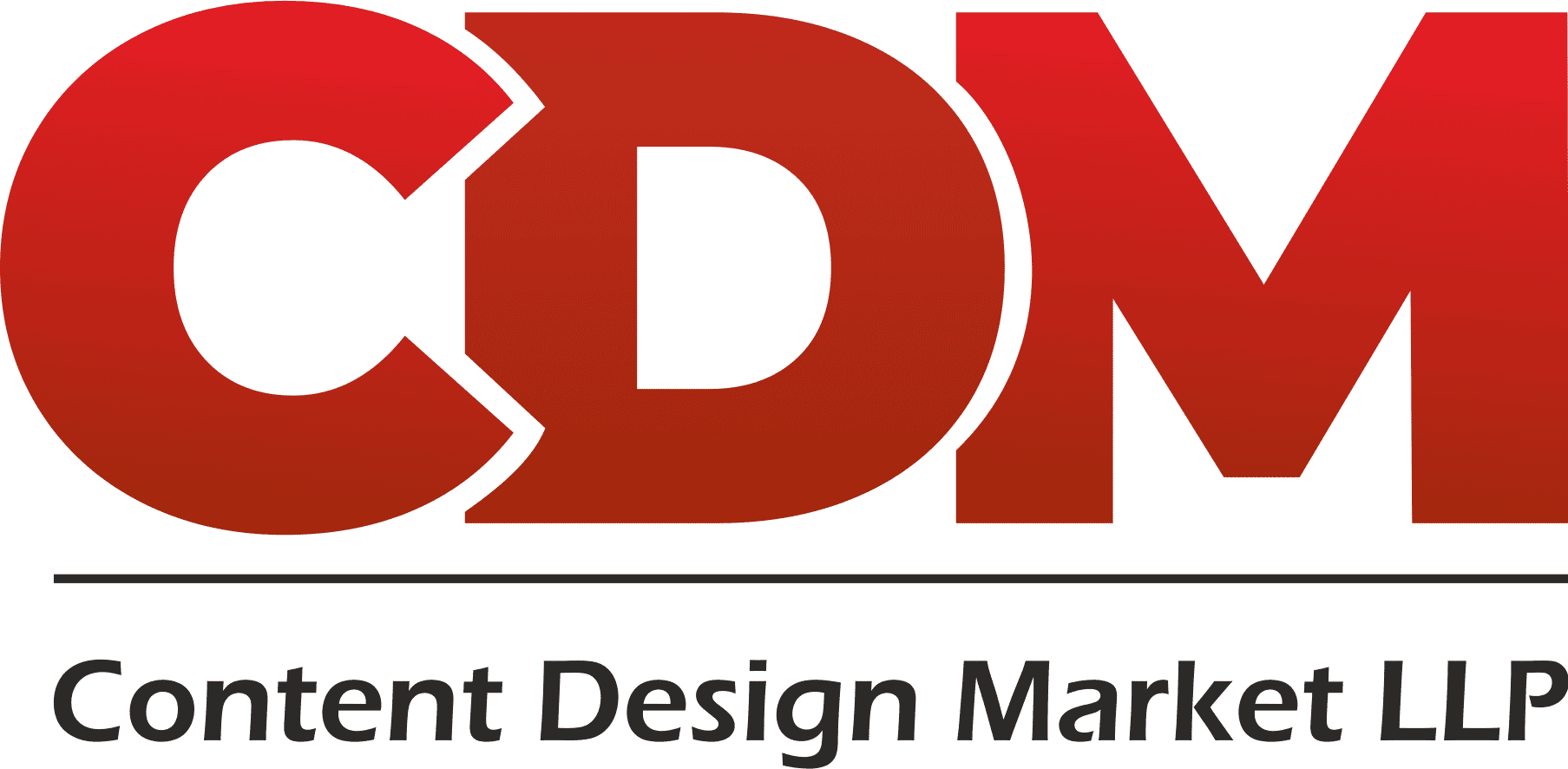Search engine optimization (SEO) refers to practices that boost the visibility and ranking of web pages in organic search results. The fundamental purpose of SEO is to boost organic (non-paid) traffic to a website by optimizing various factors deemed necessary by search engines. Because organic search is the most popular way for consumers to locate and access online information, implementing an effective SEO strategy is crucial for improving the traffic and quality of visitors to your website.
Moreover, when someone searches on Google, Yahoo, or Bing, these search engines employ complex algorithms to determine the relevance and quality of web pages pertaining to that search. Understanding these algorithms and putting them into action to improve a website’s chances of ranking high in search results is all part of SEO.
Why is SEO so important?

SEO is vital for brands since it is a very effective strategy to increase your brand’s visibility in search, bring more visitors to your website, position your brand as a trusted authority in your industry, expand your business sustainably and consistently, and much more. Here’s how each of these elements contributes to the significance of SEO for your business.
Increased Organic Traffic
SEO helps improve your website’s visibility on search engine result pages (SERPs), leading to increased organic (non-paid) traffic. When your website appears higher in search rankings, more users are likely to click and visit your link.
Higher Search Engine Ranking
SEO aims to optimize various elements of your website to meet search engine criteria. You can improve your website’s ranking on SERPs by implementing effective SEO strategies. Higher rankings result in more exposure and credibility, as users tend to trust and click on websites that appear at the top of search results.
Enhanced User Experience
SEO involves optimizing your website’s design, navigation, and content to provide a better user experience. When users can easily find the information they’re looking for, navigate through your site seamlessly, and access it on different devices, they are more likely to stay longer, engage with your content, and convert into customers.
Targeted Traffic and Quality Leads
SEO allows you to target specific keywords and phrases relevant to your business or industry. When your website ranks higher for these targeted keywords, the traffic you receive is more likely to be interested in your products or services. This targeted traffic increases the chances of generating quality leads and conversions.
Cost-Effective Marketing
Compared to other digital marketing strategies like paid advertising, SEO can be cost-effective in the long run. While it requires time and effort to implement and maintain, the organic traffic generated through SEO is free. Investing in SEO can reduce your reliance on paid advertising and continuously attract organic traffic without ongoing advertising expenses.
Brand Visibility and Authority
Higher search engine rankings and increased visibility help build brand recognition and trust. When users consistently see your website listed on SERPs, it creates brand familiarity and credibility. A solid online presence and a reputation for providing valuable content and services can establish your brand as an authority in your industry.
Competitive Advantage
In today’s digital landscape, businesses compete for online visibility. Effective SEO strategies can give you a competitive edge by helping you outrank your competitors and attract more organic traffic. By staying ahead in search rankings, you have a better chance of capturing the attention of potential customers before your competitors do.
What are the main elements of SEO?

Keyword Research
SEO begins with identifying the keywords and phrases people use when searching for your website’s content information. You can determine which terms are popular and relevant to your business through keyword research.
On-Page Optimization
This involves optimizing individual web pages to improve their visibility. On-page factors include incorporating relevant keywords in titles, headings, content, and meta tags. Other elements, such as URL structure, image optimization, and internal linking, contribute to on-page optimization.
Off-Page Optimization
Off-page optimization focuses on activities outside your website to enhance its visibility and reputation. This often involves building high-quality backlinks from other reputable websites, as search engines consider backlinks a vote of confidence and relevance.
Technical SEO
Technical SEO involves optimizing the technical aspects of a website to improve its crawlability and indexing by search engines. This includes ensuring proper website structure, using clean and optimized code, improving page load speed, implementing schema markup, and optimizing mobile responsiveness.
User Experience (UX)
Search engines prioritize websites that offer a positive user experience. Factors such as easy navigation, intuitive design, fast-loading pages, and mobile-friendliness contribute to better user experience and can positively impact search rankings.
Content Creation
SEO works better when the content is top quality, informative and engaging. Websites or portals with such high-quality content consistently rank higher on search engines. So, regularly updating your website with fresh and relevant content, including blog posts, articles, videos, and infographics, is essential and can attract more organic traffic.
Titles and Meta Descriptions
When Google creates search engine results pages (or SERPs) to show users when they conduct a search, it does not show whole web pages. Instead, it offers a selected piece of information (a ‘snippet’) to represent each page that appears in search results.
Internal and External Links
A solid linking structure is essential for user experience and SEO. When you link from one page on your site to another with comparable and relevant material, you make it much easier for users to find what they need. Internal links help Google browse your site more simply, and links between pages help to spread the SEO affection across your entire website. External links, on the other hand, are used to establish authority. Google values trust and deem sites more trustworthy when they connect to (or are linked from) other reliable, authoritative sites. While obtaining other websites to link to yours is more complicated, providing links to other sites is also incredibly beneficial for SEO.
Analytics and Monitoring
SEO requires continuous analysis and monitoring of website performance. You can track important metrics such as organic traffic, keyword rankings, bounce rate, and conversions using tools such as Google Analytics. These insights help identify improvement areas and measure SEO strategies’ success.
Types of SEO
There are three types of SEO, each focusing on different aspects of optimizing a website for search engines. These types are as below:
On-Page SEO
On-page SEO is optimizing individual web pages to increase their ranking and visibility on search engine result pages (SERP). It involves optimizing various on-page elements to make them more search-engine-friendly and relevant to the targeted keywords. On-page SEO techniques include:
Keyword research and optimization: Identifying relevant keywords and strategically incorporating them into the page’s content, headings, titles, meta tags, and URLs.
Content optimization: Creating high-quality, informative, and keyword-rich content that aligns with user search intent.
HTML tags optimization: Properly structuring content with header tags (H1, H2, etc.), optimizing image alt tags, and using meta tags effectively.
Internal linking: Link relevant pages within your website to enhance the navigation and improve the flow of link equity.
Off-Page SEO
Off-page SEO refers to activities performed outside your website to improve its visibility, reputation, and authority. The primary focus is on building high-quality backlinks from other reputable websites. Off-page SEO techniques include:
Link building: Acquiring backlinks from authoritative and relevant websites, directories, social media platforms, and guest blogging.
Social media marketing: Building a solid presence on social media, sharing content, and engaging with your audience.
Online reputation management: Managing and monitoring online reviews, ratings, and mentions to maintain a positive brand image.
Technical SEO
Technical SEO involves optimizing the technical aspects of a website to enhance its crawlability, indexability, and overall performance. It’s techniques include:
Website speed optimization: Improving page load times to provide a better user experience and satisfy search engine requirements.
Mobile optimization: Make your website mobile-friendly to provide a seamless device experience.
URL structure optimization: Creating clean and descriptive URLs easily readable by search engines and users.
XML sitemap creation: Generating and submitting an XML sitemap to help search engines discover and understand your website’s structure.
Robots.txt optimization: Configuring the robots.txt file to control search engine crawlers’ access to specific pages or directories.
It’s worth noting that these methods of SEO are interconnected and should be used in tandem for the best outcomes. Off-page and technical optimization help to develop authority and enhance overall website performance, while on-page optimization gives a solid foundation.
In summary
SEO should be considered a good practice with long-term benefits rather than an exact science with immediate results. Also, remember that effective SEO requires staying up to date with search engine algorithm updates, adapting strategies accordingly, and consistently optimizing your website for better visibility and organic traffic.
Do you want to boost your online visibility? Our SEO experts will optimize your website, improve search engine rankings, and attract organic traffic that converts. Partner with us and harness the power of SEO. Contact us today!




